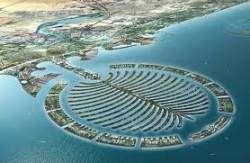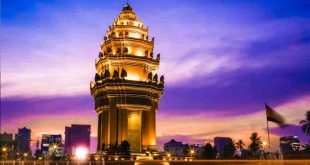Hotels in Dubai, United Arab Emirates, performed nearly in sync during Ramadan 2014 compared with Ramadan 2013, according to STR Global.
The shift of Ramadan impacts travel patterns which in turn affected overall hotel performance in Dubai.
“As Ramadan occurs at different times each year, we are always curious to analyse any differences in performance during the fasting month to determine whether its timing has an impact,” said Elizabeth Winkle, managing director of STR Global.
“We see very little difference from 2013 to 2014.
“In both years, Ramadan occurred in the height of summer months which is traditionally a slower period for the country’s hotels.
“Average-daily-rate levels managed to grow by AED4 and despite the 7.8-per cent supply growth in 2014, hotels were able to maintain the same levels of occupancy.”
During Ramadan, which was June 28th through July 28th, hotels in Dubai reported an occupancy rate of 41.2 per cent, an ADR of AED576 and revenue per available room of AED237.
Similarly, during Ramadan last year, which was July 8th through August 7th, Dubai hotels reported an occupancy rate of 42.7 per cent, an ADR at AED572 and RevPAR of AED244.
“The slow performance during July 2014 was anticipated. July is typically the weakest month of the year, and the timing of Ramadan had an impact on performance for the month.
“Post-Ramadan we’ve seen an initial uptick”, Winkle said.
“We expect, as forecasted in conjunction with Tourism Economics, that Dubai hotels will end the year with a 2.2-percent increase in RevPAR.”
Hotels in Dubai, United Arab Emirates, performed nearly in sync during Ramadan 2014 compared with Ramadan 2013, according to STR Global.
The shift of Ramadan impacts travel patterns which in turn affected overall hotel performance in Dubai.
“As Ramadan occurs at different times each year, we are always curious to analyse any differences in performance during the fasting month to determine whether its timing has an impact,” said Elizabeth Winkle, managing director of STR Global.
“We see very little difference from 2013 to 2014.
“In both years, Ramadan occurred in the height of summer months which is traditionally a slower period for the country’s hotels.
“Average-daily-rate levels managed to grow by AED4 and despite the 7.8-per cent supply growth in 2014, hotels were able to maintain the same levels of occupancy.”
During Ramadan, which was June 28th through July 28th, hotels in Dubai reported an occupancy rate of 41.2 per cent, an ADR of AED576 and revenue per available room of AED237.
Similarly, during Ramadan last year, which was July 8th through August 7th, Dubai hotels reported an occupancy rate of 42.7 per cent, an ADR at AED572 and RevPAR of AED244.
“The slow performance during July 2014 was anticipated. July is typically the weakest month of the year, and the timing of Ramadan had an impact on performance for the month.
“Post-Ramadan we’ve seen an initial uptick”, Winkle said.
“We expect, as forecasted in conjunction with Tourism Economics, that Dubai hotels will end the year with a 2.2-percent increase in RevPAR.”
breakingtravelnews.com






